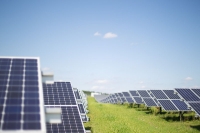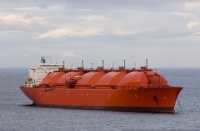During his two-day visit this week to Kiev, Ukraine, Vice President Joe Biden unfurled President Barack Obama's “U.S. Crisis Support Package for Ukraine.”
A key part of the package involves promoting the deployment of hydraulic fracturing (“fracking”) in Ukraine. Dean Neu, professor of accounting at York University in Toronto, describes this phenomenon in his book “Doing Missionary Work.” And in this case, it involves the U.S. acting as a modern-day missionary to spread the gospel of fracking to further its own interests.
With the ongoing Russian occupation of Crimea serving as the backdrop for the trip, Biden made Vladimir Putin's Russia and its dominance of the global gas market one of the centerpieces of a key speech he gave while in Kiev.
“And as you attempt to pursue energy security, there’s no reason why you cannot be energy secure. I mean there isn’t. It will take time. It takes some difficult decisions, but it’s collectively within your power and the power of Europe and the United States,” Biden said.
“And we stand ready to assist you in reaching that. Imagine where you’d be today if you were able to tell Russia: Keep your gas. It would be a very different world you’d be facing today.”
The U.S. oil and gas industry has long lobbied to “weaponize” its fracking prowess to fend off Russian global gas market dominance. It's done so primarily in two ways.
One way: by transforming the U.S. State Department into a global promoter of fracking via its Unconventional Gas Technical Engagement Program (formerly the Global Shale Gas Initiative), which is a key, albeit less talked about, part of President Obama's “Climate Action Plan.”
The other way: by exporting U.S. fracked gas to the global market, namely EU countries currently heavily dependent on Russia's gas spigot.
In this sense, the crisis in Ukraine — as Naomi Klein pointed out in a recent article — has merely served as a “shock doctrine” excuse to push through plans that were already long in the making. In other words, it's “old wine in a new bottle.”





























